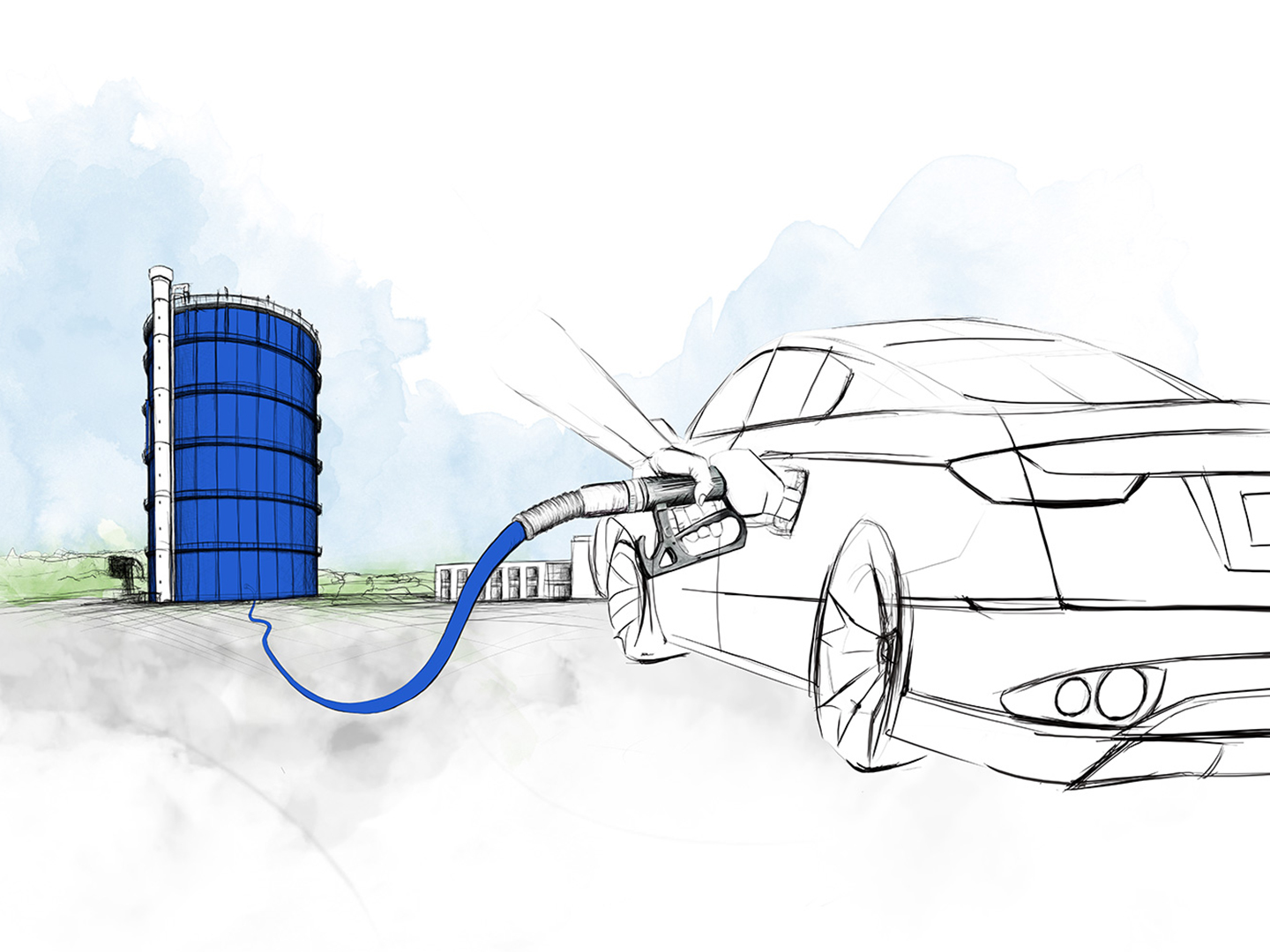
Methanol is one of the most widely produced organic chemicals. In order to produce it economically from metallurgical gas, the conventional catalyst must be put to the test. The conventional process also needs to be adapted. Following successful tests in the laboratory and technical center, economic as well as ecological evaluations are in the pipeline.
| If it is possible to tap metallurgical gas as the source of syngas, methanol becomes available, which has a significantly lower carbon footprint than the fossil-based production variant. |
Tasks
Methanol is made from syngas, which is composed of hydrogen, carbon monoxide (CO), and carbon dioxide (CO2), currently produced from fossil fuels such as coal, oil, or natural gas. In addition to the aforementioned components, metallurgical gas contains nitrogen and methane. If it is possible to tap metallurgical gas as the source of syngas, methanol becomes available, which has a significantly lower carbon footprint than the fossil-based production variant. In order to be able to provide metallurgical gas as syngas that is suitable for the production of chemical products, Carbon2Chem® needs to define new requirements for its composition, purity, and time availability. It must also be checked whether available catalysts under the given conditions have a sufficient mode of action or have economical service lives, taking into account an acceptable investment in upstream gas cleaning.
Aims
The development of economically usable technologies and their ecological evaluation are the focus of the subproject. The extent to which the CO2-based methanol synthesis is, in principle, suitable for energy storage is evaluated on the basis of the results for the conversion of syngases with a high CO2 content including regenerative hydrogen, including in the intermittent operating mode. In process development, the overall process of methanol production is considered and the energy requirements and the operating and investment costs are determined. What’s more, the composition of the syngas is optimized, the integration of renewable energy is tested and an economic comparison made with the conventional methanol production. The sustainability assessment is carried out in the form of a life cycle assessment. Finally, an economic optimum for the entire process chain is identified. The production of methanol with syngas from metallurgical gases replaces fossil raw materials and significantly reduces the carbon footprint.
 Fraunhofer Institute for Environmental, Safety and Energy Technology UMSICHT
Fraunhofer Institute for Environmental, Safety and Energy Technology UMSICHT